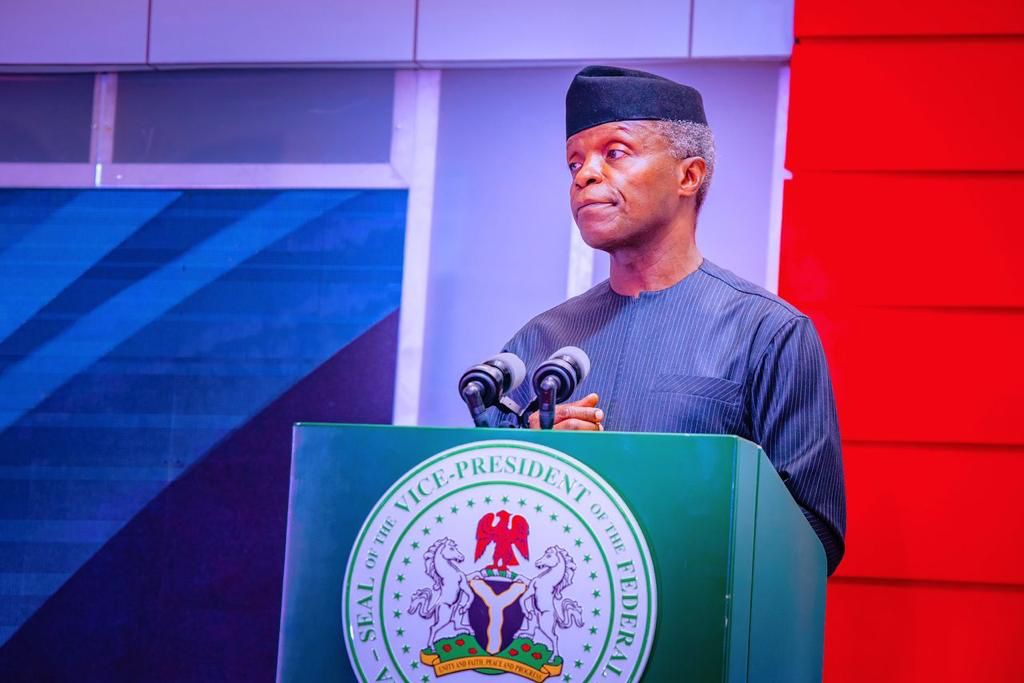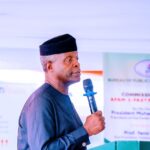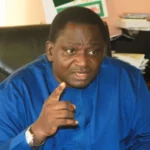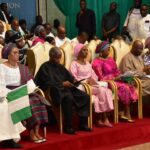Vice president, Yemi Osinbajo has said Nigeria is facing a lot of learning crisis as millions of children and young people are not developing basic skills they need to break out of poverty.
He said this had been exacerbated by the unprecedented restrictions to schooling than learning, high incessant security worries, the COVID-19 pandemic as well as more recent attacks of different forms.
- New Birth Control Pill For Men Is 99% Safe – Research
- 4 Sokoto farmers killed for ‘refusing to allow cattle feed on their crops’
Osinbajo who stated this on Thursday in Abuja at the official launch of the Nigeria Learning Passport (NLP) in collaboration with the United Nations Children’s Fund (UNICEF), Microsoft and the Global Partnership for Education (GPE), said “To ensure continuity of learning for all children and the resilience of education system to future shots, we must change by reemerging the education sector.”
The Vice President, represented by the Minister of State for Education, Chukwuemeka Nwajiuba, said there had been significant improvement in the sector but access to learning remained a big challenge.
“Over the last decade, Nigeria has made great strides in improving access to education. In the last five years, pre-primary school participation has increased from 45 per cent to 61 per cent, primary enrollment has increased by five million. The rate of out of school children has decreased by 10 per cent from 42 per cent to 32 per cent,” he said.
He said deploying innovations that rethink the current methodologies, including new approaches to delivering education in ways that defy the digital divide and ensuring learning continuity in emergencies, had become imperative.
“This launch set the foundation for creating a system of education where digital technology will be used to transform the way that learning is provided and meet the needs of every child. The NLP is an effective tool to ensure the continuity of learning through access to curriculum,” he said.
Speaking, the UNICEF representative in Nigeria, Peter Hawkins, said the platform could be quickly deployed, customised and scaled-up nationally, including in low connectivity areas.
He noted that the digital platform would address the over 89 per cent of learners who do not have access to computers in the home and over 82 per cent of learners without access to the internet in Nigeria.
“It is also an effective tool to accelerate national reforms to make quality learning opportunities available to more children, anytime, anywhere. Before COVID-19, access to quality education was already profoundly unequal; we know that in Nigeria, 28 million children in school are not learning at the appropriate levels.
“Sadly, learning is not always equipping our young people with the skills needed to excel in today’s world. If we are to realize the ambition of SDG4, then we need to reimagine education, and the deployment of innovations like the Learning Passport will help to bring us there.
In his remark, the Minister of Education, Malam Adamu Adamu, represented by the Acting Permanent Secretary, David Gende, said the platform would be an effective tool for learning in the country.
He noted there was no going back on the education they had before the COVID-19 pandemic, saying, “Digital learning has become a steady path on the back bone of learning and teaching the new skills that the young people need to participate effectively in a knowledge and increasingly technology driven economy. We must do all that is needed to increase the quality.”
The minister added, “This is the time for all of us to engage in the entire process of IT, ICT integration to lead a speedy transformation of teaching, learning, research and administration. The learning passport developed for the Nigeria context has come at an opportune time to support children to acquire skills for the future.”

 Join Daily Trust WhatsApp Community For Quick Access To News and Happenings Around You.
Join Daily Trust WhatsApp Community For Quick Access To News and Happenings Around You.


